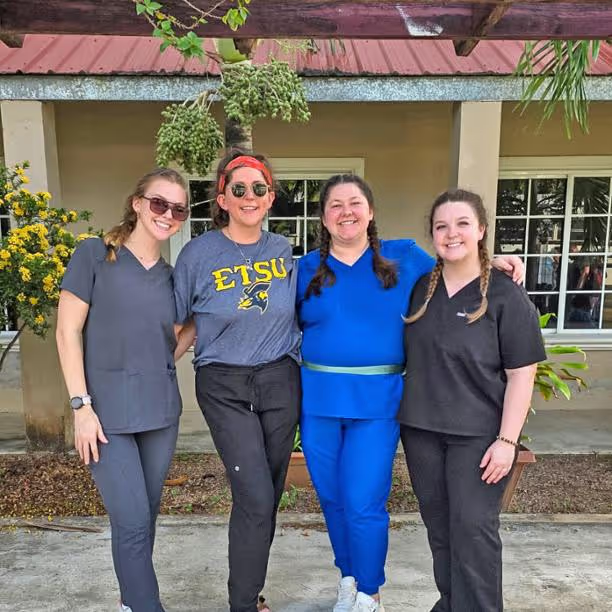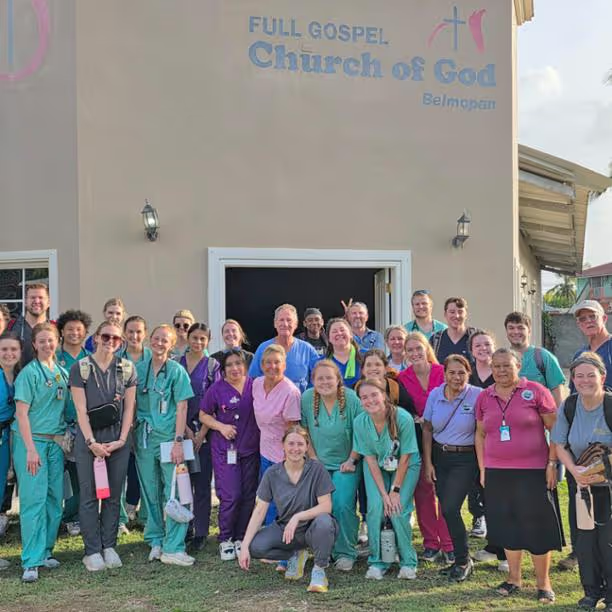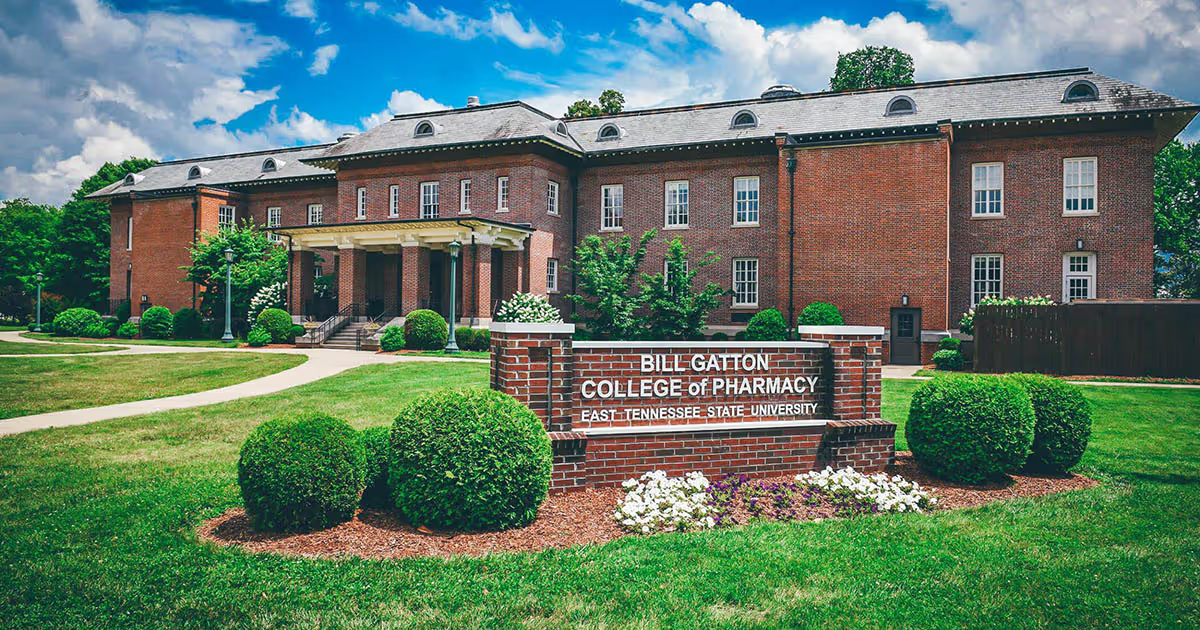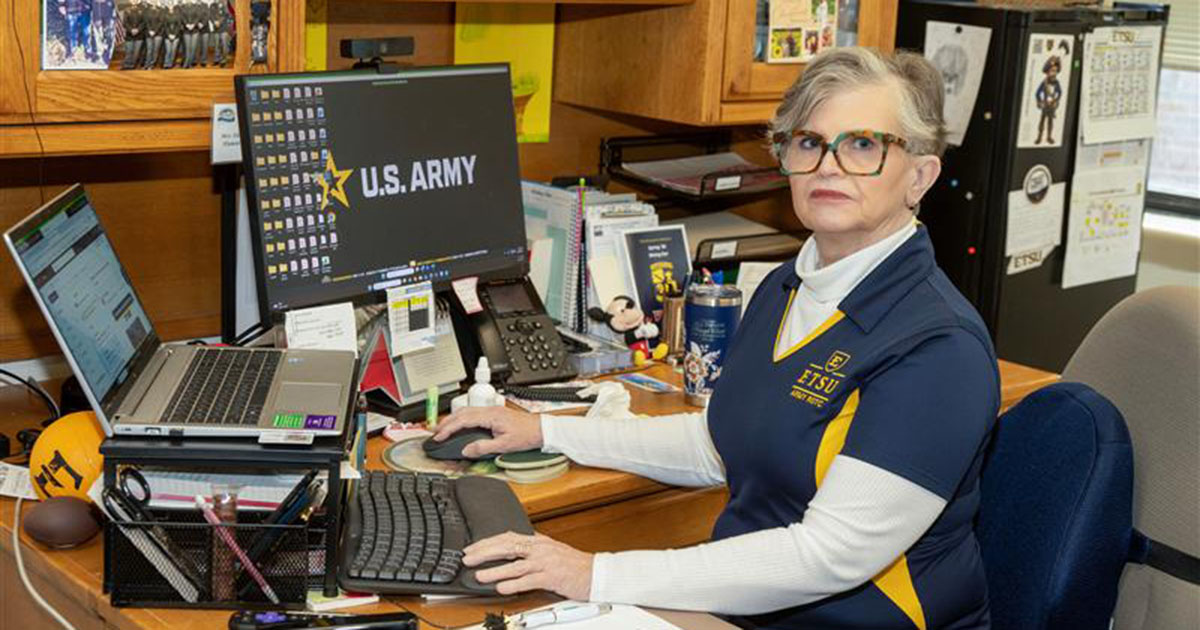JOHNSON CITY, Tenn. (August 26, 2025)—For a week in June, students and faculty from East Tennessee State University Bill Gatton College of Pharmacy journeyed from Appalachia to the heart of Central America, joining forces with ETSU Quillen College of Medicine on an interprofessional medical outreach trip that left a lasting impact far beyond the clinic walls.
Partnering with Body and Soul Ministries, the team — including Dr. Kylie Futrell, recent Academic Pharmacy Fellow, and student pharmacists, P4s Kaylee Duff Rasnake, Mallory Johnson, and Whitley Hudson — traveled to Belize’s rural Cayo District, seeing patients in clinic settings, consulting on medications, and supporting home visit teams in villages where access to health care is scarce.
Boots On the Ground
Alongside 16 medical students and local community health workers, the interprofessional team provided free care to more than 350 patients across five underserved villages, supporting Gatton’s mission to train collaborative pharmacists who improve healthcare in rural and underserved communities.
“These visits allowed our team to care for some of the sickest and most vulnerable individuals in the community,” said Hudson. “We would gather our supply and medication bags, then head out to provide care directly in patients homes. These visits gave patients the chance to share not only their health concerns but also their personal stories. This gave us the opportunity to learn more about the people of Belize and their beautiful culture!”
“This trip was a remarkable and truly impactful experience for me not only as a student pharmacist but as a person,” said Mallory Johnson. “My role switched every day with responsibilities that ranged from community pharmacy to ambulatory care, to even home health pharmacy.”
Under the guidance of Dr. Futrell, students immersed themselves within the interprofessional team dynamic, learning to collaborate across disciplines and cultures.
Of all the experiences, it was the home visits that left the deepest impression.
“Each day, there was a team consisting of a student pharmacist, physician, and medical student who partnered with a community health worker from each community who knew which patients needed care directly in their homes,” Johnson explained. “We spent quality time with these patients in their homes and did as much as we could with the equipment and medication on our backs.”

Lessons for a Lifetime
For the student pharmacists, the lessons learned in Belize reach far beyond borders.
“One of the most important lessons I took away from this experience was the value of meeting patients where they are,” said Hudson. “There were several instances where first line or even second line treatments were not the most appropriate option due to limited access to follow-up care for monitoring or access to the medication itself. This changed us to think creatively and adapt treatment plans that were practical for each patient.
“Serving the rural and medically underserved in Belize proved to be directly applicable to our local population by learning how to optimize our limited resources to form a safe and appropriate care plan for our patients,” said Johnson. “This experience will undoubtedly change how I care for my patients moving forward.”





.avif)
